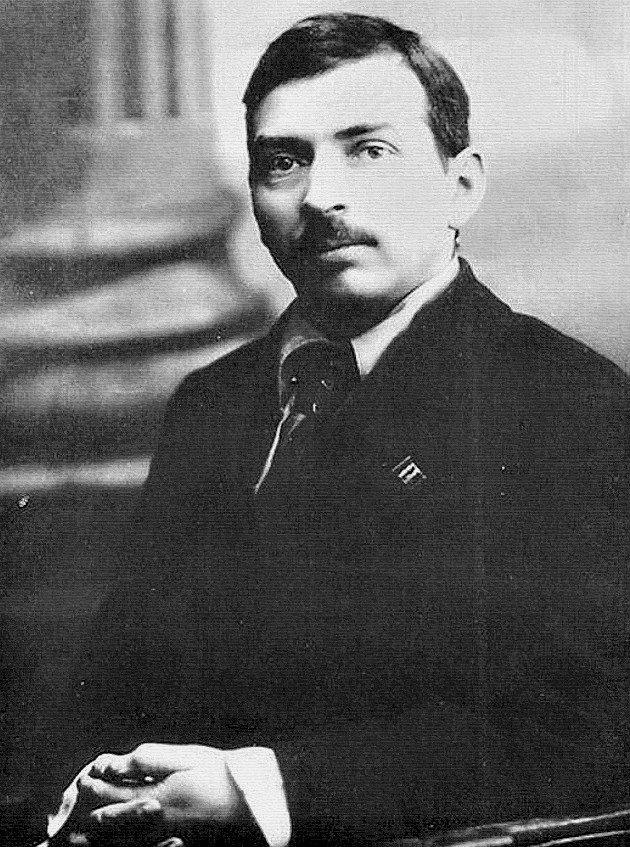Tomskiĭ, M. P. 1880-1936
Enlarge text Shrink text- Vsesoi︠u︡znyĭ sʹezd professionalʹnykh soi︠u︡zov (6th : 1924 : Moscow, R.S.F.S.R.). Shestoĭ sʹezdprofessionalʹnykh soi︠u︡zov SSSR, 1925:t.p. (... M.P. Tomskogo)
- McGraw-Hill Encyclopedia of Russia and the Soviet Union, c1961:p. 569 (Tomsky, Mikhail Pavlovich, 1880-1936)
- Sobietto Renpō ni okeru jūnenkan no rōdō ... 1928:t.p. (Emu Eru Tōmusukī [in katakana]) added t.p. (M. Tomskiĭ)
Mikhail Pavlovich Tomsky (Russian: Михаи́л Па́влович То́мский), born Mikhail Pavlovich Yefremov (Russian: Ефре́мов) (31 October 1880 – 22 August 1936) was a factory worker, trade unionist, and Soviet politician. He was the Chairman of the All-Union Central Council of Trade Unions in the 1920s. In his youth, Tomsky worked at the Smirnov Engineering factory in St. Petersburg, but was eventually dismissed from that job for attempting to organise a trade union. His labour activities radicalized him politically and led him to become a socialist and join the Russian Social Democratic Labour Party in 1904 and eventually join the Bolshevik faction of the party. After the revolution, Tomsky was associated with the right wing faction of the party headed by Nikolai Bukharin and Alexey Rykov, a group seeking orderly planning, a moderate tempo of industrialization, and eschewing rapid and forced collectivization of agriculture. Tomsky's primary bailiwick revolved around the trade union movement, of which he was the head and spokesman in the 1920s. An orientation towards trade union autonomy placed him in opposition to party radicals seeking rapid collectivization and strict party control over trade unions, leading to his downfall in 1928. Tomsky was implicated in the investigation preceding the First Moscow Trial of 1936, an event which inaugurated the Great Purge. He would subsequently commit suicide to avoid arrest by the NKVD in August 1936.
Read more on Wikipedia >
 Personality
Personality




